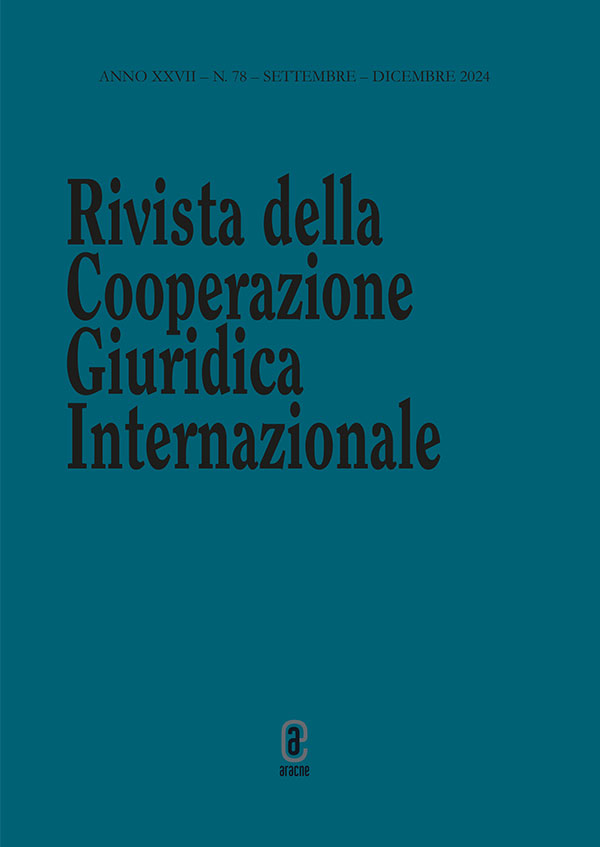DOI: 10.53136/97912218165491
Pages: 11-23
Publication date: January 2025
Publisher: Aracne
SSD:
IUS/13
For some time now, there has been a tendency in doctrinal debate to assign a central importance to the individual within the context of international law. In this context, there is talk of a kind of “humanization” of international law primarily for two reasons: due to the growing attention (at least in principle) to the protection of fundamental rights and individual freedoms and due to the presence of international criminal law norms and their impact on the evolution of international law. For these reasons, doctrine discusses an (unlikely) “evolution” of international law from a framework centered on States (and for States) to one directed towards individuals (and for individuals). In other words, the alleged international subjectivity of individuals would be based on the existence of individual rights recognized and protected at the international level and capable of being upheld before international jurisdictions, as well as on the existence of “original” international criminal norms that determine individual responsibility at the international level. This contribution, also in light of Rolando Quadri’s thought, aims to provide a critical reconstruction of the doctrine on the matter and highlight the lack of solid foundations for the theory of the international subjectivity of the individual, instead emphasizing the predominant - and indeed exclusive - role of States in terms of subjectivity in international law.




